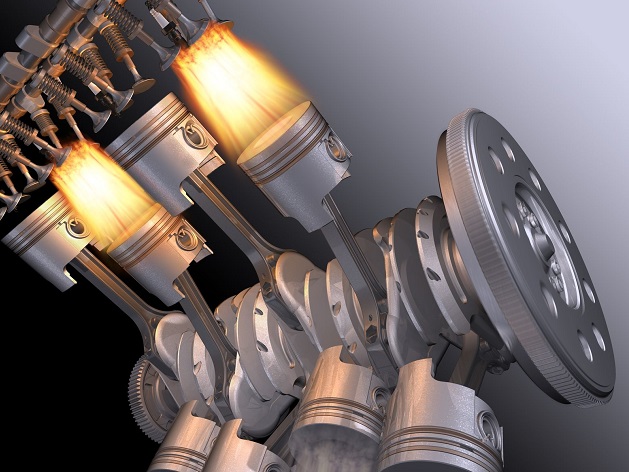Paragraph
Natural gas engines are environmentally friendly alternatives to gasoline-powered vehicles. Before choosing a vehicle with a natural gas engine, you should understand how they operate, how to care for them, and why they require specialized natural gas engine oil. Here are some things you can do to care for a natural gas engine:
Understand the Basics of Natural Gas Engines
Understanding the fundamentals of natural gas engines helps you understand what maintenance is needed and why. Engines that use natural gas engine oil operate on compressed natural gas or liquefied natural gas. These engines are designed to combust natural gas efficiently, reducing greenhouse gas emissions and air pollutants. If you notice a decrease in your vehicle’s miles per gallon, it may be time to schedule a maintenance service to increase the engine’s longevity.
Schedule Regular Inspections and Tune-Ups
Routine inspections keep your natural gas engine in top condition. Schedule regular check-ups with a certified mechanic to assess the condition of the engine’s components. These professionals assess aspects of the engine, like the fuel, ignition, and exhaust systems. Detecting and addressing potential issues early prevents costly repairs in the future. Tune-ups should be performed at intervals recommended by your mechanic or the engine’s manufacturer to optimize the engine’s performance and fuel efficiency.
Use High-Quality Fuel
The quality of natural gas you use directly impacts your engine’s performance. Use natural gas from reputable suppliers to make sure it is of higher purity. This process helps you avoid contaminated fuel that could harm the engine. Visit the mechanic regularly to check for impurities in the fuel system, and invest in a quality fuel filter to trap any debris or particles that might compromise the engine’s functionality.
Use Natural Gas Engine Oil
Make sure that you use oil and lubricants specifically designed for natural gas engines. These lubricants are formulated to withstand the unique conditions of natural gas combustion. A properly oiled engine is protected against excessive wear and corrosion. Regularly check and change the oil in your natural gas vehicle according to the manufacturer’s recommendations to maintain optimal engine performance.
Monitor and Manage Engine Temperature
Monitor the engine’s temperature regularly to make sure it isn’t overheating. If you notice a high reading on your temperature gauge, visit a trusted mechanic to address any overheating issues quickly. Keep the cooling system in top condition by checking coolant levels and flushing the system as your mechanic or manufacturer recommends. Managing your natural gas engine’s temperature contributes to effective fuel combustion and your vehicle’s overall health and longevity.
Test the Exhaust System for Emissions
The exhaust system of a natural gas engine plays a significant role in controlling the vehicle’s emissions. Schedule regular inspections for the exhaust components, including the catalytic converter and muffler, to make sure they are functioning correctly. Address any signs of corrosion or damage promptly to prevent emissions issues. Have your car tested for emissions by your local government to maintain compliance with environmental regulations.
Stay Informed About Software Updates
Modern natural gas engines often come with advanced engine management systems. Stay informed about software updates the manufacturer provides to enhance your vehicle’s performance, fuel efficiency, and emission control. Regularly updating your engine’s software confirms that you are benefitting from the manufacturer’s latest technological advancements and improvements.
Store and Handle Natural Gas Safely
If your vehicle is equipped with a compressed natural gas system, follow proper guidelines for storing and handling CNG tanks. Make sure that the tanks are inspected regularly for any signs of damage or wear to keep your vehicle safe while driving. Adhere to gas distributors’ safety protocols to minimize the risk of leaks or accidents associated with improper CNG storage or handling.
Embrace Eco-Friendly Driving Habits
Adopting eco-friendly driving habits can contribute to the efficiency and longevity of your natural gas engine. Practice smooth acceleration and deceleration to minimize stress on the engine and maximize fuel efficiency. Sudden starts and stops lead to increased wear and tear, affecting the overall performance of your natural gas engine. Driving at consistent speeds and avoiding unnecessary fluctuations enhances fuel efficiency by reducing fuel consumption and minimizing emissions. Excessive idling wastes fuel and puts unnecessary strain on the engine. If you anticipate being stationary in your vehicle for an extended period, turn off the engine. This simple practice contributes to fuel savings and reduces environmental impact.
Care For Your Natural Gas Engine
Caring for your natural gas engine properly involves understanding the basics of natural gas engines, scheduling regular check-ups, and using the correct fuel. To find high-quality natural gas and engine oil, look for a reputable natural gas distributor in your area. These professionals offer fuel delivery and maintenance services to keep your natural gas engine in good condition. Contact a natural gas distributor today to learn more about how they can help you care for your natural gas vehicle.
techmagzine.net








